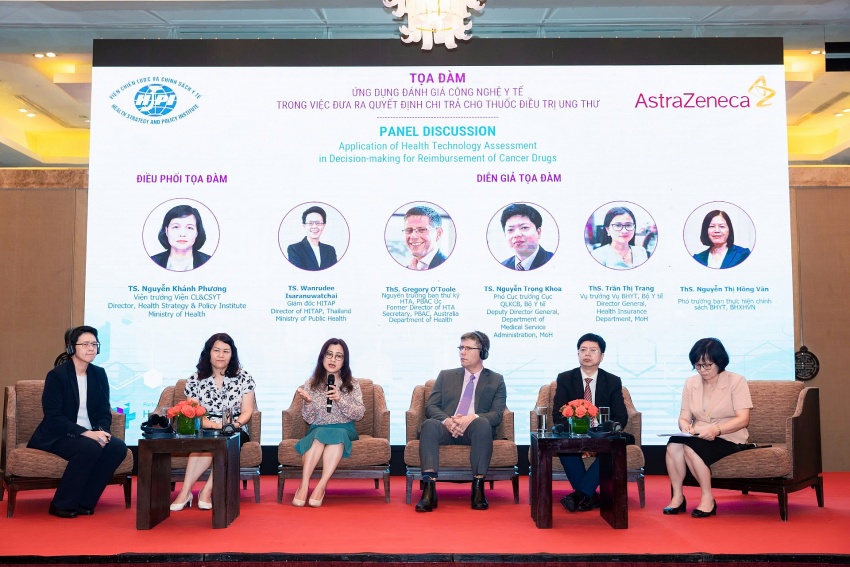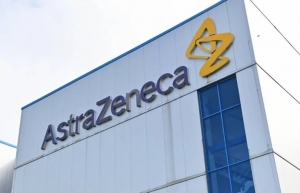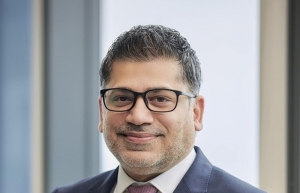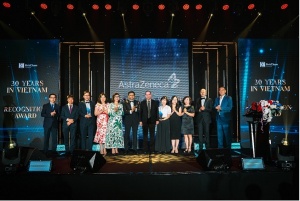Seeking to address challenges of cancer treatment costs in Vietnam
Jointly organised by the Health Strategy and Policy Institute under the Ministry of Health (MoH) and AstraZeneca Vietnam, the workshop was attended by over 100 delegates representing various units of the MoH, Vietnam Social Security, provincial departments of health and social security, research institutions, and major hospitals nationwide. Leading international experts in HTA from Australia and Thailand also participated.
 |
The event was part of the "Partnership for Health System Sustainability and Resilience in Vietnam 2022-2025" programme between the Health Strategy and Policy Institute and AstraZeneca Vietnam.
Currently, cancer ranks second only to cardiovascular diseases in the total burden of disease in Vietnam. The total number of healthy years of life lost due to cancer in 2021 was 2.86 million DALYs (disability-adjusted life years). The cancer burden in Vietnam is the largest among ASEAN countries. According to the World Health Organization, by 2040, the number of new cancer cases in Vietnam is projected to increase by approximately 59.4 per cent (equivalent to 291,000 cases), and cancer-related deaths are expected to rise by about 70.3 per cent (equivalent to 209,000 cases).
The cost of cancer treatment poses a significant burden on both the health insurance system and patients, with out-of-pocket expenses for patients reaching up to 70 per cent of the total treatment costs (according to statistics from K Hospital). Vietnam has the highest rate of cancer patients facing catastrophic healthcare costs in ASEAN, with 37.4 per cent of patients falling into poverty due to the overwhelming expenses of cancer treatment.
Furthermore, in pursuit of the goal of universal health insurance coverage, approximately 93.35 per cent of the population now has health insurance. Access to health insurance benefits, including coverage for cancer treatment costs, has become a lifeline for hundreds of thousands of cancer patients and their families. Currently, 69 cancer treatment drugs are included in the list of medications covered by health insurance, out of 1,037 pharmaceutical and biological drugs available to health insurance participants.
While many new-generation advanced cancer treatment drugs with high efficacy and favourable safety profiles are being developed and meet the needs of clinical experts and patients alike, they are not yet included in the list of drugs covered by health insurance.
This situation highlights the need to develop and update the list of reimbursable drugs under health insurance. The criteria for selecting and adding cancer drugs must balance the demands of effective treatment, increased access to advanced therapies for cancer patients, and reduced out-of-pocket expenses while ensuring a balanced budget and effective, sustainable management of the health insurance fund.
At the workshop, experts from Vietnam and around the world presented updated data and shared international experiences from Australia, Thailand, and several other countries on how to apply HTA to make reimbursement decisions for cancer treatment drugs. The aim is to reduce the financial burden on patients while balancing the fund and ensuring patient access to advanced and effective treatments.
Addressing the event, Deputy Minister of Health Prof. Dr. Tran Van Thuan, stated, “The application of HTA in reimbursement decisions for cancer treatment drugs plays a crucial role in ensuring the effective use of the health insurance budget and enabling patients to access modern treatment methods. This workshop will positively contribute to developing equitable and sustainable healthcare policies for Vietnam.”
Dr. Nguyen Khanh Phuong, director of the Health Strategy and Policy Institute, said, "HTA is a crucial tool that provides regulatory agencies with relevant scientific evidence on various aspects, including treatment effectiveness, safety, cost-effectiveness, and potential impact on the health insurance fund’s budget. This serves as a foundation for making optimal decisions on coverage for cancer treatment drugs. The appropriate and effective application of HTA in Vietnam helps optimise resources and ensures that the population has access to advanced and effective treatment methods, reducing the burden of cancer and increasing the sustainability of the healthcare system."
During the discussion, delegates presented the current situation of cancer treatment drug reimbursement in Vietnam and the challenges in applying HTA. Experts from Australia and Thailand shared their experiences on how to apply HTA to optimise payment decisions, balancing cost and treatment effectiveness.
Solutions discussed included establishing a specific process for cancer drugs, applying risk-sharing models, and setting up a dedicated fund for cancer treatment drugs. The insights from these experts will serve as a foundation for improving health insurance fund policies, ensuring the sustainability of the fund and patient access to modern treatment methods.
Atul Tandon, general director of AstraZeneca Vietnam, said, “AstraZeneca not only brings innovative medicines and advanced treatments that transform patients' lives, but also promotes collaborative programmes to support the development of a sustainable and equitable healthcare system. We are proud to partner with the MoH in efforts towards the sustainability and resilience of the healthcare system, particularly with initiatives aimed at increasing financial sustainability while enhancing patient access to advanced treatments. In the future, I believe that with collaboration across various levels and sectors of society, we can address significant healthcare challenges, including equity, sustainability, and the resilience of the healthcare system, through advanced, science-based approaches.”
Previously, the Health Strategy and Policy Institute organised several workshops and training programmes on HTA application to raise awareness and capacity among stakeholders, aiming to enhance the financial sustainability of Vietnam’s healthcare system. These efforts are part of the "Partnership for Health System Sustainability and Resilience" programme in collaboration with AstraZeneca Vietnam.
Recently, the institute successfully conducted two training workshops on "Enhancing Capacity in Appraising and Interpreting Health Technology Assessment Results" in Hanoi and Ho Chi Minh City. This conference marks another significant step in the process of HTA application, bringing Vietnam closer to the goal of building an equitable and sustainable healthcare system.
 | AstraZeneca to build 1.5 billion USD cancer drug facility in Singapore British pharmaceutical company AstraZeneca announced on May 20 its intention to build a 1.5 billion USD facility in Singapore to produce new generation cancer treatment drugs. |
 | Nitin Kapoor of AstraZeneca Vietnam appointed MBE Nitin Kapoor, chairman of AstraZeneca Vietnam, has been appointed as a member of the Order of the British Empire (MBE) by His Majesty King Charles for his outstanding contributions to the health sector and international diplomacy. |
 | AstraZeneca honoured with award from BritCham The British Chamber of Commerce in Vietnam has acknowledged AstraZeneca for its unwavering commitment and outstanding achievements in advancing innovation and applying science in the healthcare sector in Vietnam. |
What the stars mean:
★ Poor ★ ★ Promising ★★★ Good ★★★★ Very good ★★★★★ Exceptional
 Tag:
Tag:
Themes: Healthcare Platform
- Opella and Long Chau join forces to enhance digestive and bone health
- Hanoi intensifies airport monitoring amid Nipah disease risks
- Cosmetics rules set for overhaul under draft decree
- Policy obstacles being addressed in drug licensing and renewal
- Sanofi, Long Chau Pharmacy relaunch medicine blister pack collection initiative
Latest News
More News
- Hanoi intensifies airport monitoring amid Nipah disease risks (January 29, 2026 | 15:21)
- Congratulations from VFF Central Committee's int’l partners to 14th National Party Congress (January 25, 2026 | 09:46)
- List of newly-elected members of 14th Political Bureau announced (January 23, 2026 | 16:27)
- 14th Party Central Committee unanimously elects To Lam as General Secretary (January 23, 2026 | 16:22)
- List of members of 14th Party Central Committee announced (January 23, 2026 | 09:12)
- Highlights of fourth working day of 14th National Party Congress (January 23, 2026 | 09:06)
- Press provides timely, accurate coverage of 14th National Party Congress (January 22, 2026 | 09:49)
- Press release on second working day of 14th National Party Congress (January 22, 2026 | 09:19)
- Minister sets out key directions to promote intrinsic strength of Vietnamese culture (January 22, 2026 | 09:16)
- 14th National Party Congress: Renewed momentum for OVs to contribute to homeland (January 21, 2026 | 09:49)




















 Mobile Version
Mobile Version